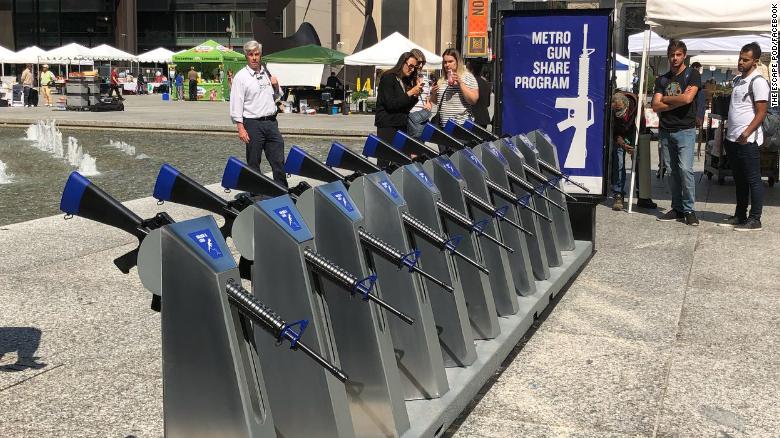Among the startling aspects of the probe by the U.S. Bureau of Alcohol, Tobacco, Firearms and Explosives was that many of the trafficked weapons were recovered by law enforcement within weeks or months of their resale — a metric known as “time to crime” that’s often used to identify guns that are being illegally trafficked.
One gun sold outside Louisville in December 2016 was used just four months later in an armed carjacking in west suburban Westchester, according to the complaint. Another, purchased in May 2017, was found within three months on a man arrested for pointing the gun at someone during a verbal altercation on the street. Other weapons tied to the trafficking scheme quickly turned up during narcotics investigations, court-authorized searches or hidden under car seats during traffic stops, according to the charges.
Armslist has come under increased scrutiny by gun control advocates in recent years because the online marketplace does not require a would-be purchaser to register or identify himself or herself in any way. In a 2017 gun trace report, the city of Chicago noted that the number of guns available on Armslist had jumped to 148,000 from 12,000 — a 12-fold increase — since 2011.
The Chicago Tribune has reported that the Glock pistol used to kill Chicago police Cmdr. Paul Bauer had been sold through Armslist to a Milwaukee man in 2017 before winding up in the hands of a convicted felon who allegedly shot Bauer during a confrontation outside the Thompson Center in February.
Armslist has also been at the center of at least two federal lawsuits in recent years in Illinois and Wisconsin alleging that its failure to screen potential buyers has led to acts of violence.
In 2011, Demetry Smirnov, a Russian immigrant living in Canada, purchased a handgun though Armslist from a Seattle man even though federal law prohibits a private seller from transferring a firearm to residents of another state or country, the lawsuit alleged. Smirnov then went to a strip mall in west suburban Oak Brook and used the gun to fatally shoot Jitka Vesel, a woman he'd been accused of stalking.
A year later in Milwaukee, Radcliffe Haughton bought a gun on Armslist even though he'd been named in a restraining order filed by his wife and therefore barred by state and federal law from possessing a firearm, another lawsuit alleged. Days later, he entered the spa and salon where his wife worked and opened fire, killing her and two others and wounding four. He then turned the gun on himself.
The Illinois case was thrown out by a federal judge who ruled that Armslist merely facilitated the posting of ads for gun sales and was not responsible for vetting potential buyers.
The Wisconsin suit was also dismissed on similar grounds, records show.
Armslist could not be reached for comment, but lawyers for the site have noted in the past that users must click that they agree not to use its website for any illegal purpose.
According to the charges unveiled Tuesday, Wright is a member of the “Coco and Cornell gang,” a faction of the Conservative Vice Lords named after two 16-year-old associates who were fatally shot in 2012.
Henderson and Phillips used various names and email addresses to contact sellers via Armslist, including one email address that was registered in the name “Kobe Bryant,” according to the complaint. Several of the sellers interviewed by ATF agents identified Henderson as the person who purchased the weapons and described his white “muscle car,” and cellphone records placed both Henderson and Phillips at the scenes of many of the transactions, according to the charges.
Wright, meanwhile, acted as a broker, using Facebook and other means to advertise the weapons purchased by Henderson and Phillips to his fellow gang members, according to the complaint.
The charges included a number of Facebook photographs Wright allegedly posted of weapons for sale — including handguns with extended clips and laser sights, military-style rifles and machine pistols.
In one transaction from August 2017, Wright sent a photo of nine handguns, an AR rifle and a bag filled with ammunition to a known gang member along with a price of $2,000, the charges alleged.
After the gang member balked at the cost, Wright renegotiated a deal for six of the handguns — a conversation that was all captured on Facebook, the charges alleged.


 Likes:
Likes:  Faceplams:
Faceplams: 



 Reply With Quote
Reply With Quote






